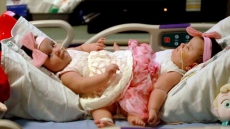The year 2018 marks the centenary of the end of World War I. ‘The War to End All Wars’ or ‘The Great War for Civilisation’ did not achieve what the belligerents or its protagonists imagined. Neither did it end ‘Before Christmas’, as the British expected, nor ‘Before the Leaves Fall’, as per the German objectives.
The armistice was signed at 11 am on the 11th day of the 11th month of 1918 in the railway carriage of Marshal Ferdinand Foch in the Forest of Compiegne, north of Paris. The Treaty of Versailles of 1919 ended the war between Germany and the Allied Powers. November 11 is commemorated as Remembrance Day.
Major-Gen Ganga Singh (Maharaja of Bikaner) was a member of the Imperial War Council in 1917. India was a separate signatory to the Treaty of Versailles and a founding member of the League of Nations.
It was the only non-independent territory to have this status. Ganga Singh was the sole Indian or ‘non-white’ representative at the signing of the treaty. The iconic painting, The Signing of Peace, shows an imposing Ganga Singh in uniform with the traditional safa.
The Great War was dominated by technological developments of the barbed wire, heavy artillery, magazine-filled rapid-fire rifles and belt-fed machine guns. All contributed towards the butcher work. The industrialised fighting changed the nature of war.
About 70 million military personnel were mobilised and 16.5 million killed. Of the million horses employed, only 60,000 survived. India provided 1.73 lakh horses, mules and camels for the war and recruited over 14.40 lakh men, sent more than 13.81 lakh for service overseas, of which 74,187 officers and men were killed and another 70,000 wounded.
Of the killed, 13,516 names are inscribed on the India Gate Memorial, New Delhi, completed in 1933. India bore the cost of these men, besides an outright contribution of £100 million towards the overall war effort. India’s contribution was never fully acknowledged by Imperial Britain. Independent India remains indifferent, labelling it as ‘not our war’ and participating reluctantly in events commemorating the war centenary.

An Indian soldier wrote home from the Western Front: And so the war is raging by sky and land and sea,/And underneath the water, five kings are fighting three/The cannon roar like thunder, the bullets fly like rain,/And only the hurt, the maimed and blind will ever see home again. (Shrabani Basu; For King And Another Country.)
Renewed interest and research prompted by the war centenary 2014-18 has thrown up material on India’s critical contribution, especially in the initial phases on the Western Front and in the closing stages in the Middle East.
While the larger issues of empire, colonialism, class and its effect on an entire generation impacted the world at large, the war also left some memorable terms and phrases on the military and everyday lexicon. Even vernacular languages felt the effect.
When the German warship ‘Emden’, prowling in the Bay of Bengal, shelled Madras harbour and the city on September 22, 1914, causing mass evacuation, it brought the war to India before Indian troops went into action on the Western Front.
The Tamils, evidently impressed with the demonstrated German capability, coined a new word — ‘emden’, meaning ‘an enterprising, resourceful and meticulous person’. Sikh soldiers returning from the war and evidently impressed by officer ranks went on to name their children Kaptan, Major, Karnail and Jarnail Singh.
The war produced some outstanding poetry and prose, mostly by young men who saw the horrors first-hand in the trenches. Some are universally inscribed on memorials and cemeteries. The fourth stanza of Laurence Binyon’s For the Fallen, published in The Times on September 21, 1914, has come to be the universal ‘Ode of Remembrance’ read at most commemorations: They shall not grow old, as we that are left grow old/Age shall not weary them, nor the years condemn./At the going down of the sun and in the morning/We shall remember them.
Lt Col John McCrae, a Canadian, seeing poppies near the grave of his dead friend, in lament wrote In Flanders Field: In Flanders fields the poppies blow/Between the crosses, row on row,/That mark our place; and in the sky/The larks, still bravely singing, fly/Scarce heard amid the guns below.
In Flanders Field struck a chord with the public and poppies soon came to be associated with the war dead. Poppy wreaths are today symbolically laid on war memorials. Some countries like Canada have a poppy imprinted on the car number plate to signify the owner as a veteran. Remembrance Day is also called Poppy Day.
In India, we do not have any such symbolic association to remember and commemorate the war dead, though in our tradition and culture marigold flowers find prominence both to celebrate and to mourn. In Indian life, colours hold especial importance. White is widely accepted as the colour of peace and purity. Yellow symbolises sanctity and therefore yellow marigold are used on auspicious occasions while saffron represents courage and sacrifice.

The Armed Forces Flag Day observed on December 7, since 1949, is the only official annual event related to the soldier. It is a day dedicated to the collection of funds from people for the welfare of the armed forces personnel. Perhaps it would be appropriate to institute the saffron marigold as our symbol of recognition of the dead soldier and upgrade the Flag Day into Remembrance Day.





